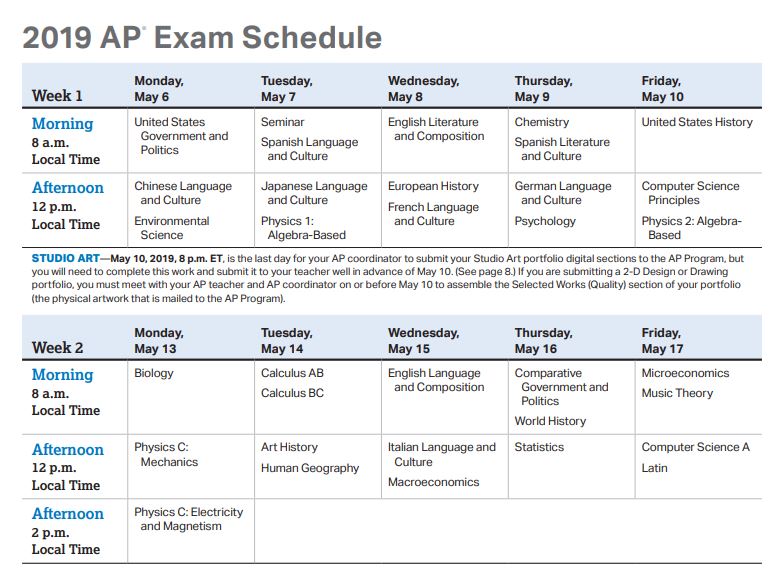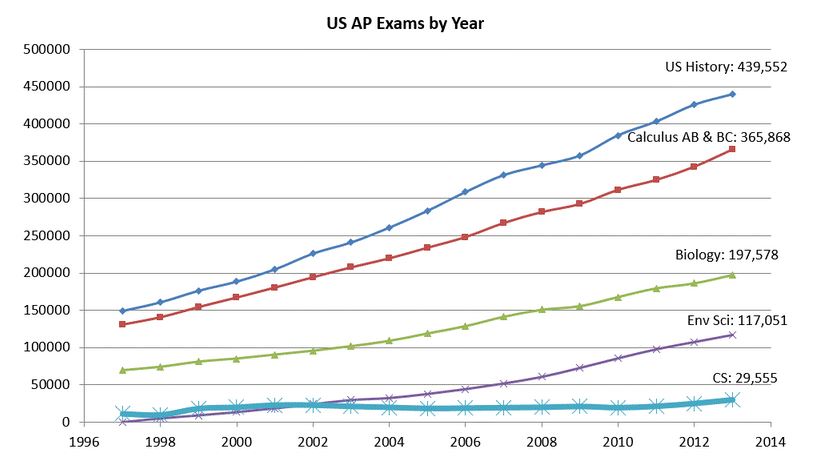Many students who take AP classes and exams are asking this question: Is my AP score good enough? The answer is complicated. AP scores are on a simple 5 point scale, but colleges are allowed to decide for themselves what score is required to get credit.
The College Board defines the scores as follows:
- 5 – Extremely well qualified to receive college credit
- 4 – Well qualified to receive college credit
- 3 – Qualified to receive college credit
- 2 – Possibly qualified to receive college credit
- 1 – No recommendation to receive college credit
The average score on all AP exams is slightly below a 3. In 2013, of the more than 3 million AP exams administered, the grades broke down as follows:
- 14% of test takers got a score of 5
- 20% of test takers got a score of 4
- 25% of test takers got a score of 3
- 22% of test takers got a score of 2
- 19% of test takers got a score of 1
AP scores are also not required for college admissions; typically, a student will send his/her AP scores after senior year to the chosen college for credit. But strong AP scores can boost a student’s college applications. Students also need to check AP credits BEFORE registering for freshmen college courses.
For other college information and to find out how many credit hours you may get, students can search for credit policies at each college on the College Board website.
When should I start studying for AP Exams?
Many students start shifting to AP prep mode 1 to 3 months before test day, usually ramping up by spring break. The goal is to give yourself enough time to get used to AP question types, take a few practice tests, review content, and hone your test-taking strategy.

The good news is that all your hard work for your AP classes is setting a great foundation for the AP test. Use your old tests and quizzes to track where you need to beef up your knowledge and what topics you already know well.

